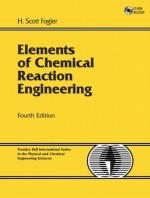|
This section contains 4,072 words (approx. 14 pages at 300 words per page) |

|
The number of possible chemical reactions is so vast that chemists have divided them into categories. Although there is no single, universally recognized classification schemes, there are relatively few classification schemes and some very important names of types of reaction are used generally. Most chemists divide reactions into groups based on structural features of molecules and ions that allow them to predict the products that would result if a particular molecule or ion undergoes a class of reaction. Often a chemist can use the classification of reactions and information about a molecule or ion's structure to predict how readily it would react with another molecule or ion. Five general types of reactions cover most situations: acid-base, oxidation-reduction (redox), addition, substitution, elimination, and rearrangement (also called metathesis) reactions. The first two are commonly used categories, but chemists divide other reactions in several different ways. Some...
|
This section contains 4,072 words (approx. 14 pages at 300 words per page) |

|


